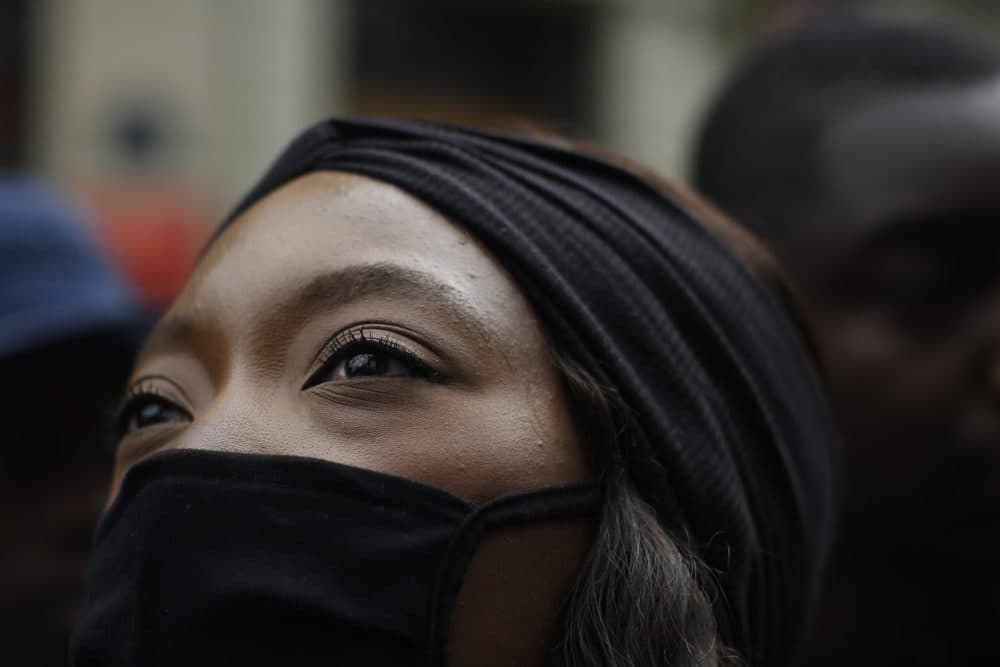Advertisement
Commentary
Beyond The Obligatory Statement: Here Are 5 Things Organizations Can Do To Meaningfully Combat Racism

Over the past two weeks demonstrators have flooded the streets of cities across the U.S. demanding action against police brutality and systemic racism, particularly in response to the extrajudicial killings of George Floyd, Breonna Taylor and Ahmaud Arbery.
Although the issues protestors raise are not new, this current moment marks a shift not only because the scale of protests have expanded beyond metropolitan regions to include smaller towns and rural areas, but also because the protests are led mostly by local Black activists joined by large multi-racial coalitions who have been awakened to the problems of anti-Blackness and white supremacy, at least in part, through social media.
As the protests have gained momentum, brands and organizations have also taken to social media denouncing racism — many of them making such declarations for the first time. It makes sense that organizations are responding to protest by making public statements. Protests can help facilitate social change, and research shows that corporate social responsibility matters, especially to the nine out of 10 millennials who say they would switch brands to one associated with a cause.
While organizations respond to the ongoing crisis with public stances against racism, it is also important that they examine their own practices and commit to actions that address systemic bias and anti-Blackness within their organizational structure.
Here are five questions organizations can ask themselves to help move beyond symbolic action and commit to transformation that can be seen and felt by Black people.
1. In what ways will your organization acknowledge responsibility in the pursuit of racial justice?
Right now, many people are coming to the realization that racism is a problem. They see the systemic issue and want to take a stand against violent acts of injustice, but it takes much more work to understand the ways that individuals are complicit in the problem of racism, either consciously or subconsciously. It is important to acknowledge and accept responsibility for the harm that Black people may experience not only through violent actions or the use of slurs, but in subtle manifestations such as micro-aggressions, unequal access to opportunity and the way performance is judged or rewarded.
2. How will you ensure that the voices influencing organizational action are inclusive and representative?
Rather than aiming solely for “diversity,” which is a numeric characteristic, the voices influencing your organization’s response should also be “inclusive” — given power in the conversation, and “representative” — reflective of not just a hand-picked few, but of the experiences of Black people across all divisions of the organization. At the same time, it is important that the responsibility of action does not fall solely, or disproportionately, on Black people and other minorities, but rather is carried out by broad groups of people informed by expertise and best practices. If your organization hasn’t hired or retained a critical mass of Black employees, you have an opportunity to learn. Hire a consultant to recommend strategies to transform your organization into a space where Black employees feel safe, included and valued.
Advertisement
3. How will your budget and resource allocation reflect your commitment? How will you ensure that individuals who guide your organization’s response are recognized and compensated for their additional labor?
A budget is a moral statement of priorities. It is unfair to expect Black people in your organization to perform the labor of building and transforming for free, especially if those tasks are outside of their job descriptions. If your organization establishes a committee to address racial issues, recognize the individuals who serve by giving the committee a name, compensation and authority. If you require outside resources to do the work of racial justice, or if your organization chooses to act by donating to social justice efforts, dedicate a budget line so that those commitments can be sustained over time. Expect that the work of transformation will require time, energy and money.
4. What measures are put in place to support Black people and offer education for other members of the organization?
Black people are often expected to educate others in order to justify their feelings of pain or outrage, and these expectations are especially acute during times of national crisis. Rather than asking Black members of your organization to teach or comfort others during these times, your organization can provide resources so that everyone is better equipped to affirm the values of equality and justice through their thoughts and interactions. Books and articles are a great start, and there are also a number of excellent resource guides available online.
5. What forums are available for members of your organization to provide feedback on their experiences, and how will you track progress over time?
People can feel a sense of mistrust if they believe their experiences do not reflect an organization’s purported values. As your organization takes steps to rectify systemic injustice there must be a system of accountability so that important feedback — positive and negative — can be acknowledged and addressed. One important step is making sure that your organization centralizes the process of feedback — individuals need to be able to identify a clear pathway for voicing their concerns, and need the assurance that their concerns will not be dismissed. In addition to centralizing efforts, organizations need to articulate clear goals in the pursuit of racial justice, develop strategies for measuring their progress and hold themselves accountable for that progress.
Stances against racism must transcend symbolism; the real work is bringing reform to the systems that uphold systemic racism. Ultimately the path to justice can strengthen our brands, businesses, community groups, schools and universities, places of worship and other organizations in ways that benefit everyone. Justice is about building a better world for us all.
